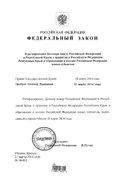
Back Ампыҵахалара Abkhazian ضم عسكري Arabic Anneksiya Azerbaijani Анексія Byelorussian Анэксія BE-X-OLD Анексия Bulgarian Аннекси BXR Annexió Catalan خستنەپاڵ CKB Anneksiya CRH
Pengilhakan atau aneksasi (bahasa Inggeris: annexation) merupakan tindakan pentadbiran[1] dan konsep undang-undang antarabangsa mengenai pengambilalihan wilayah sesebuah negara berdaulat secara paksa oleh negara lain.[2] Umumnya ini dikira tindakan yang haram.[2] Berbeza dengan penaklukan yang memaksukan pengambilalihan kuasa terhadap sesebuah wilayah yang melibatkan pertukaran kedaulatan.[3][4] Biasanya menyusuli pendudukan tentera terhadap wilayah berkenaan.[1]
Pengilhakan berbeza dengan penyerahan kerana tidak seperti penyerahan yang dilakukan melalui perjanjian, pengilhakan merupakan tindakan unilateral yang mana wilayah dirampas oleh sesebuah negara.[5] Pengilhakan boleh disahkan melalui pengiktirafan umum oleh badan-badan antarabangsa (iaitu negara-negara lain dan pertubuhan antara kerajaan).[5][6][1]
- ^ a b c Rothwell et al. 2014, halaman 360: "Annexation is distinct from cession. Instead of a State seeking to relinquish territory, annexation occurs when the acquiring State asserts that it now holds the territory. Annexation will usual follow a military occupation of a territory, when the occupying power decides to cement its physical control by asserting legal title. The annexation of territory is essentially the administrative action associated with conquest. Mere conquest alone is not enough, but rather the conquering State must assert it is now sovereign over the territory concerned. For example, the defeat of Germany and Japan in 1945 led to their occupation by the Allies for a number of years, but the States themselves were not absorbed by the Allied Powers part of their respective territories. Examples of annexation in contemporary practice are not common, and are generally viewed as illegal."
- ^ a b Hofmann 2013, halaman i: "Annexation means the forcible acquisition of territory by one State at the expense of another State. It is one of the principal modes of acquiring territory... in contrast to acquisition a) of terra nullius by means of effective occupation accompanied by the intent to appropriate the territory; b) by cession as a result of a treaty concluded between the States concerned (Treaties), or an act of adjudication, both followed by the effective peaceful transfer of territory; c) by means of prescription defined as the legitimization of a doubtful title to territory by passage of time and presumed acquiescence of the former sovereign; d) by accretion constituting the physical process by which new land is formed close to, or becomes attached to, existing land. Under present international law, annexation no longer constitutes a legally admissible mode of acquisition of territory as it violates the prohibition of the threat or use of force. Therefore annexations must not be recognized as legal."
- ^ Marcelo G Kohen (2017). "Conquest". Dalam Frauke Lachenmann; Rüdiger Wolfrum (penyunting). The Law of Armed Conflict and the Use of Force: The Max Planck Encyclopedia of Public International Law. Oxford University Press. m/s. 289. ISBN 978-0-19-878462-3.
Conquest and annexation are not synonymous either. The latter term is used within and outside the context of armed conflicts, to designate a unilateral decision adopted by a State in order to extent its sovereignty over a given territory. In many cases, the effective occupation of a terra nullius was followed by a declaration of annexation, in order to incorporate the territory under the sovereignty of the acquiring State. In the context of armed conflicts, annexation is the case in which the victorious State unilaterally declares that it is henceforth sovereign over the territory having passed under its control as a result of hostilities. This attempt at producing a transfer of sovereignty through the exclusive decision of the victor is not generally recognized as valid, both in classical and in contemporary international law. An example of a case of annexation preceding the adoption of the UN Charter is the annexation of Bosnia-Herzegovina by the Austro-Hungarian Empire in 1908. The annexation was not recognized by the major Powers and required a modification of the 1878 Treaty of Berlin which had simply granted Austria-Hungary the right to administer the territory. Another example is the annexation of Ethiopia by Italy in 1936. Examples of purported contemporary annexations are the Golan Heights annexed by Israel in 1980 and Kuwait by Iraq in 1990, both declared null and void by the Security Council, or the incorporation of Crimea and the City of Sebastopol in the Russian Federation.
- ^ Kohen, p.288, refers to clause 101 of the PERMANENT COURT OF INTERNATIONAL JUSTICE, 1933, April 5th, General List: No. 43. TWENTY-SIXTH SESSION, LEGAL STATUS OF EASTERN GREENLAND: "Conquest only operates as a cause of loss of sovereignty when there is war between two States and by reason of the defeat of one of them sovereignty over territory passes from the loser to the victorious State."
- ^ a b Satu atau lebih ayat sebelumnya menggabungkan dan menterjemah teks dari penerbitan sekarang di domain awam: Barclay, Thomas (1911). "Annexation". Dalam Chisholm, Hugh (penyunting). Encyclopædia Britannica (dalam bahasa Inggeris). 2 (ed. ke-11). Cambridge University Press. m/s. 73.
- ^ "Annexation". Encyclopædia Britannica. Encyclopædia Britannica Online. Dicapai pada 20 March 2014.
Unlike cession, whereby territory is given or sold through treaty, annexation is a unilateral act made effective by actual possession and legitimized by general recognition.

